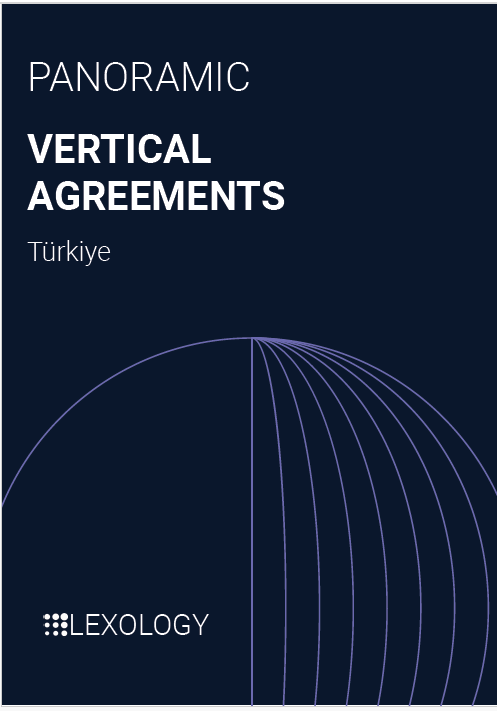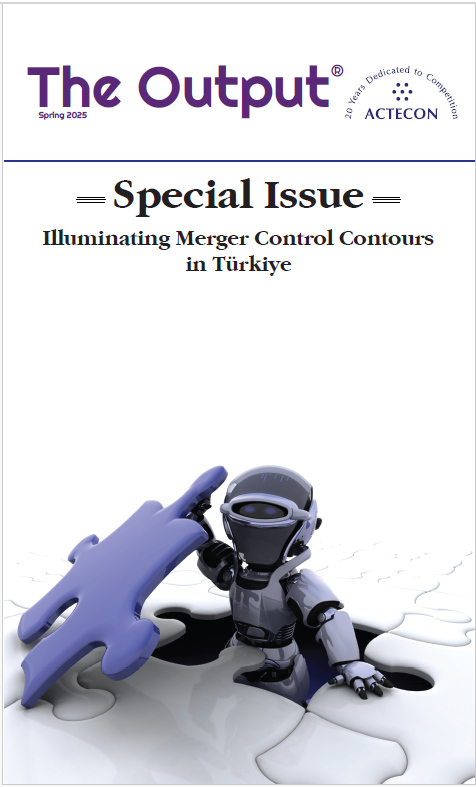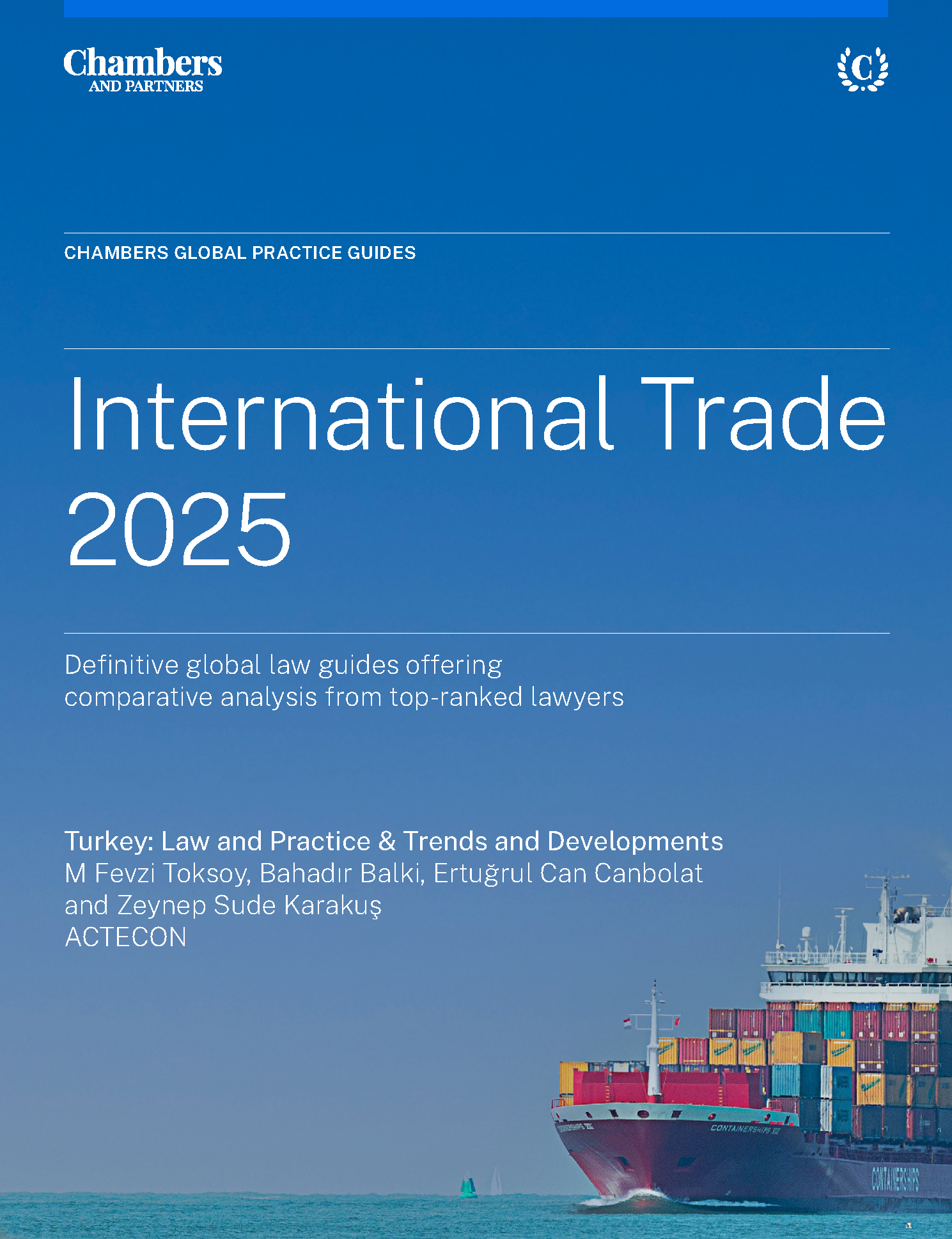Main Developments in Competition Law and Policy 2024 – Türkiye
| Competition Law

Article By Hanna Stakheyeva and Ertuğrul Can Canbolat
2024 was marked by significant investigations, fines, and new frameworks addressing emerging issues in competition law of Türkiye. From resale price maintenance (RPM) and labor market agreements to the regulation of digital marketplaces, the Turkish Competition Authority’s (TCA) activities reflect a commitment to fostering competitive markets across various sectors. This short article outlines and summarizes the most notable competition law developments in Türkiye in 2024, focusing on the relevant cases and legislative updates.
Resale Price Maintenance Cases and Settlements
Resale price maintenance remained a recurring theme in TCA’s enforcement efforts in 2024. Key examples underscoring the TCA’s stringent stance on interventions that limit retailers’ pricing freedom include the following sectors:
• White appliances, consumer electronics: the TCA concluded its investigation into Electrolux, finding that the company engaged in RPM. An administrative fine of approx. EUR 820,000 was imposed. The fine was increased due to Electrolux’s coercion of other undertakings into the violation.
• Food and beverages: The TCA fined Nestle approx. EUR 11.95 million for engaging in RPM and imposing territorial and customer restrictions on distributors. The investigation concluded that Nestle controlled sales prices, restricted distributor sales territories, and imposed active/passive sales prohibitions in violation of Article 4 of the Turkish Competition Law (equivalent of Art 101 TFEU).
• Cosmetics: Investigations into online sales restrictions and RPM, with Abko fined approx. EUR 0.2 million despite commitments resolving some competitive concerns.
• Cleaning products (paper, wet wipes, etc): Viking Kağıt was fined approx. EUR 302,443 for RPM. This is with a 15% reduction applied due to the settlement.
Focus on Labor Market Competition
Labor markets emerged as a critical area of focus, reflecting a global trend in antitrust enforcement. The TCA introduced Guidelines on Competition Infringements in Labor Markets, addressing practices such as no-poach agreements and wage-fixing arrangements. Both are deemed analogous to cartel behavior, as these agreements restrict employee mobility and undermine competition.
The Guidelines clarify enforcement priorities for wage-fixing, no-poaching, and information exchanges. The Guidelines outline criteria for exemptions under Article 5 and stress that labor-related restrictions in main agreements must be necessary and proportional.
Among the key cases in 2024 is the IT Sector decision (24-10/170-66) on no-poaching agreements. The TCA investigated and imposed an administrative fine of approx. EUR 5.3 million on 8 undertakings operating in the information technologies sector. No violation was found in relation to the remaining 12 undertakings that were party to the investigation.
Digital Market Oversight and Algorithmic Practices
Digital marketplaces and tech giants were significant focuses of the TCA’s enforcement in 2024:
• Google’s matters: In 2024, the TCA issued several significant decisions regarding Google. On 16 May, the TCA announced that it imposed daily fines totaling approximately EUR 13.7 million for Google’s non-compliance with obligations related to local search and accommodation price comparison services. These fines were terminated as of 21 May after Google implemented the required changes for local search services concerning hotel inquiries. On 4 July, the TCA concluded an investigation into Google’s general search services, finding no abuse of its dominant position, and thus imposed no fines. However, on 12 December, the TCA found Google guilty of abusing its dominant position in the publisher ad server services market by favoring its own supply-side platform service, resulting in a record fine of TRY 2.6 billion (approx. EUR 75 million).
• Trendyol’s self-preferencing practices: Trendyol faced a fine of TRY 61.3 million (approx. EUR 1.75 million) for prioritizing its private label products in its algorithms. Additionally, the TCA required Trendyol to implement technical safeguards to ensure fair competition.
• Algorithmic pricing adjustments: The TCA addressed concerns about Trendyol’s and Hepsiburada’s automatic pricing mechanisms. Following an investigation into automated pricing mechanisms, both platforms committed to removing the “Equalize to Buybox Price” option and ensuring that their algorithms do not favor sellers using these mechanisms. Compliance reports will be submitted annually to the TCA.
These cases highlight the TCA’s proactive approach to regulating digital platforms and fostering competition in technology-driven markets.
Merger Control Developments
The TCA’s 2024 merger control activities were defined by its focus on technology undertakings. Following amendments to Communique No. 2010/4, technology-related mergers must be notified regardless of their Türkiye-related turnover thresholds. This ensures that mergers in dynamic and innovation-driven sectors such as digital platforms, software, biotechnology, and health technologies are adequately scrutinized.
Key 2024 cases exemplify this trend:
- Software and Cybersecurity: The TCA reviewed mergers involving companies offering advanced scheduling, cyber-physical security solutions, and cloud-based customer experience platforms (e.g., ICRON, TRAPMINE, QUALTRICS).
- Digital Platforms: Transactions in sectors such as online marketplaces, mobile applications, and cryptocurrency exchanges were closely examined. Notable examples include acquisitions of KAHOOT (online learning software) and H3C (cloud programming and industrial networking).
- Health Technologies and Biotechnology: Mergers in areas like medical devices, pharmaceutical R&D, and AI-driven healthcare solutions were subject to TCA review. For instance, cases involving companies like COMPUGROUP MEDICAL and TRIMBLE SOLUTIONS highlighted the breadth of technological innovation under scrutiny.
These developments demonstrate the TCA’s commitment to addressing the complexities of technology-driven markets while ensuring compliance with evolving competition policies. Companies operating in these sectors are advised to evaluate merger strategies carefully to align with the TCA’s rigorous standards.
Going Greener
The TCA’s Strategic Plan 2024-2028 emphasizes digital and green transformation, aligning with global trends towards sustainability and innovation. Key highlights include support for eco-friendly collaborations among competitors and the development of green policies to promote sustainable industrial practices. It also considers permitting non-compete obligations exceeding five years for resellers if manufacturers commit to significant environmental investments. Additionally, the plan highlights the potential for redefining relevant product markets in the automotive sector to reflect advancements and developments in the electric vehicle market, ensuring alignment with emerging green technologies.
In a notable step toward fostering innovation and sustainability, the TCA provided reasoned decision to the granted individual exemptions for two significant collaborations aimed at developing Türkiye’s electric vehicle (EV) charging network. These exemptions, given to partnerships between Trugo (a subsidiary of Türkiye’s indigenous electric car producer, Togg) and Shell, as well as between Togg and Bosch, reflect the TCA’s recognition of the pro-competitive benefits of such initiatives, which aim to promote EV adoption, reduce carbon emissions, and accelerate Türkiye’s transition to cleaner energy solutions. These decisions set a vital precedent for future collaborations in Türkiye’s energy and automotive sectors, showcasing how businesses can foster innovation within the framework of competition law.
Legislative Updates
Several regulatory advancements complemented the TCA’s enforcement actions in 2024, with particular attention to labor markets and digital platform regulations:
• DMA Amendments in Progress: The long-anticipated amendments to align Turkish competition law with the EU’s Digital Markets Act (DMA) remain in draft form. These amendments aim to establish a framework for addressing gatekeeper behavior and fostering fair competition in digital markets. They are expected to enhance the TCA’s toolkit for regulating dominant digital platforms, but their adoption is still pending final approval.
• Guidelines on Labor Markets Adopted: The TCA officially adopted the Guidelines on Competition Infringements in Labor Markets. These Guidelines clarify enforcement priorities and provide a comprehensive framework for assessing anti-competitive practices such as wage-fixing agreements, no-poach agreements, and information exchanges. The Guidelines include a precise focus on practices that restrict labor mobility and detailed criteria for ancillary restraints. The document also emphasizes the competitive significance of labor markets and reinforces that agreements affecting employee mobility are akin to cartels, making them violations by object. Both wage-fixing and no-poaching agreements are illegal, regardless of whether employers are competitors in the output market, as long as they compete in the labor market.
• New Regulation on Fines: Replacing a 15-year-old framework, the new Regulation on Fines abandons the previous approach where the base fine rate was determined solely based on the classification of violations as either “cartels” or “other violations.” Instead, a new method that considers the nature of the violation and its adverse effects on competition has been adopted. Parallel to this, the lower and upper limits of fines based on the distinction between “cartels” and “other violations” have also been removed. Additionally, the time intervals considered for increases based on the duration of the violation have been shortened to reflect the objective conditions of the violation more fairly in the fines. Aggravating and mitigating factors for adjusting the fine according to the subjective conditions of the enterprise have been revised, and the lower limit for increases due to aggravating factors and the lower and upper limits for reductions due to mitigating factors have been removed. This aims to penalize competition violations harming consumer welfare more effectively and deter potential future violations.
• Public Procurement and AI Collaboration: The TCA signed a landmark protocol with the Public Procurement Authority (PPA) to leverage AI tools in detecting anti-competitive behaviors in public procurement. According to it, the PPA and the TCA will use AI-assisted technologies to fight possible violations. This includes strengthening data analysis in procurement processes and developing innovative tools to detect violations ex officio. This expanded collaboration aims to enhance the effectiveness of public procurement processes, ensuring greater transparency and compliance with competition laws.
Conclusion
The competition law developments in Türkiye throughout 2024 reflect a proactive and forward-thinking approach by the TCA to address both traditional and emerging challenges in the market. With a focus on fostering fair competition, regulating dynamic sectors like digital markets, and aligning with global trends in sustainability and labor market protections, the TCA underscores its proactive role in fostering fair competition and innovation. Looking ahead, these developments set a solid foundation for continued progress in competition policy in the region.







